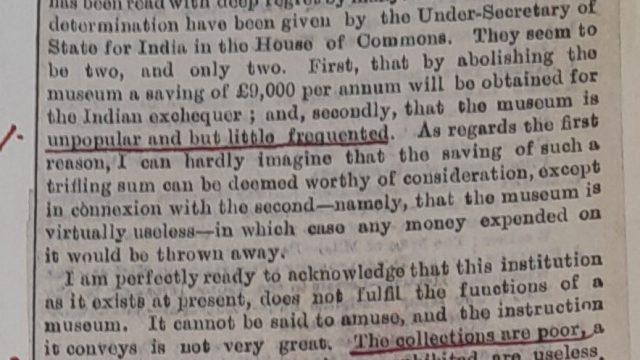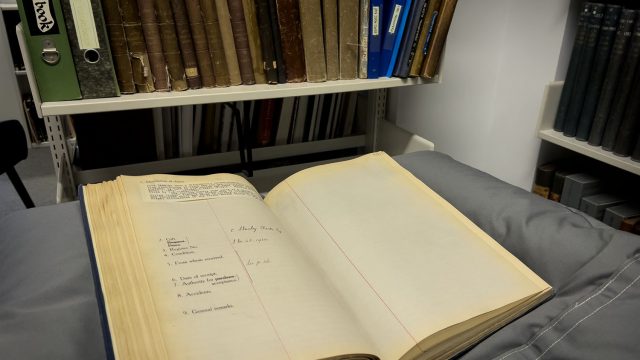A new book display curated in collaboration with the Krasna-Krausz Foundation titled Witness/Memory/Recall is now open in the V&A Photography Centre. On view until May 2024, the display celebrates past winners and longlisted entries of the Kraszna-Krausz Book Awards.
Inaugurated in 1985, the award recognises outstanding books on photography and moving image, with an emphasis on those works that combine images and text. Witness/Memory/Recall includes books by artists Laia Abril, Dawoud Bey, Gordon Parks and others whose work bears witness to, memorialises, or recalls significant events, people or places. Shown on open shelves alongside the extensive Royal Photographic Society Library in the Kusuma Gallery, these display books are available for visitors to pick-up and read. Brian Pomeroy of the Kraszna-Krausz Foundation explains more about the display and the Kraszna-Krausz Foundation here.
Something that we have observed, and that has interested us in recent years, is how artists have made increasing use of archives – both personal and institutional – alongside their own work to recall or revisit records of past events, and then develop new interpretations or presentations of these accounts. Artists continue to harness the power of photography to record events happening now and the impacts these events are having on people and places. The book format is an ideal way to present and share such work and is often paired with new or historical texts and documents.

This selection shows only some of the ways in which the photobook has been used to not just disseminate a visual narrative of an event or moment in history, but preserve and recall memories of it. The objects in this display take a broad look at this idea, considering it within domestic and family contexts; around ideas of place and how this is impacted by conflict; and in relation to acts of oppression and social injustice. Odesa (Yelena Yemchuk and Illya Kaminsky, 2022) is a poetic ode to life in Odesa, Ukraine. On the Mines (David Goldblatt and Nadine Gordimer, 2012) documents everyday life in a segment of South African society. Racial discrimination and violence are the subject, both directly and more obliquely, in Segregation Story (Gordon Parks, 2014), Stranger Fruit (Jon Henry, 2022) and Road Through Midnight: A Civil Rights Memorial (Jessica Ingram, 2020).


Caspian: The Elements (2018) by Chloe Dewe Mathews records several years traveling the area around the Caspian Sea and the role of the natural resources that shape human life there. Lisa Barnard’s The Canary and the Hammer (2019) looks at the long, complex and global story of gold and the many stories around its pursuit. Perspectives on conflict are considered in An Act of Unspeakable Violence (Matthias Bruggmann, 2018) and in Syria and Annals of the North (Gilles Peress, 2021) on Northern Ireland. A Stranger In My Mother’s Kitchen (Celine Marchbank, 2022) looks at memory and grief at home and Dream is Wonderful, Yet Unclear (Maria Kapajeva, 2020) explores loss in a community as local industry leaves. On Rape: And Institutional Failure (Laia Abril, 2022) is the second chapter in her ongoing project, A History of Misogyny, which harrowingly details the long history of violence and oppression against women that still exists today.


The aim of the Krasna-Krausz Foundation is to stimulate and celebrate the production of outstanding photography books, and books about the moving image, exceptional for both their content and their design. Crucially, it foregrounds the photobook not merely as a derivative of, or substitute for, photographs displayed on the gallery wall, but as a distinctive genre in its own right. As well as giving prizes for individual books, the Foundation makes lifetime awards to photographers with long and prominent histories of publishing their work in book form. Recent recipients include Don McCullen, Josef Koudelka and Susan Meiselas. In addition to honouring photographers, the Foundation recognises the publishers of photography books, for example, the late Robert Delpire.
The books in Witness/Memory/Recall span the globe and events from a century of history. They demonstrate the many ways in which photographs and texts can be brought together in book form to produce a shared record. In these different modes, they also show the lasting contributions that photobooks make to visual culture, something that the Kraszna-Krausz Foundation is committed to acknowledging and supporting. This small selection is indicative of the many powerful books that have been championed over the history of the prize.



Thanks for sharing the insights into this fascinating display; I’ll be sure to enjoy it in that elegant space when visiting next month.